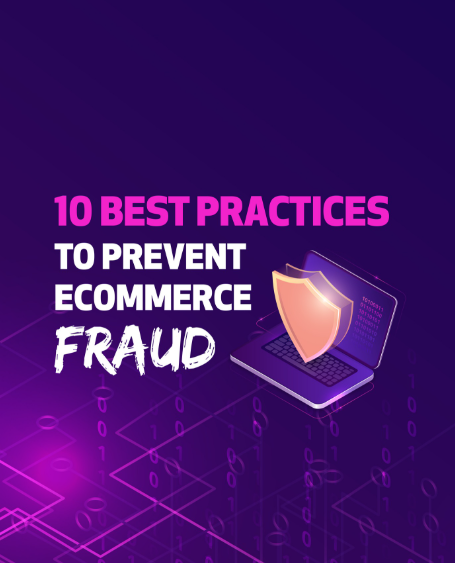The e-commerce industry continues to grow rapidly, bringing with it an increased risk of fraud. The cost of online fraud has escalated to a staggering $48 billion annually, making it a serious concern for e-commerce businesses. Fraud not only results in financial losses but can also damage your store’s reputation and erode customer trust.
Fortunately, e-commerce fraud is preventable. By understanding the different types of fraud and implementing effective strategies, you can safeguard your store and create a secure shopping experience for your customers. Here are 10 actionable tips to help you protect your e-commerce business from fraud.
What Is E-Commerce Fraud?
E-commerce fraud involves any dishonest activity that takes place during an online transaction, with the intent of stealing money, products, or sensitive customer data. Unlike physical theft, fraudsters can target online stores from anywhere, making it difficult to detect and prevent.
Some common types of fraud include stolen credit cards, fake refund claims, phishing scams, and account takeovers. These fraudsters are getting more creative with their tactics, so it’s crucial to stay vigilant and implement preventive measures.
Types of E-Commerce Fraud to Watch Out For
1. Credit Card Fraud
This is one of the oldest tricks in the book, where fraudsters use stolen credit card information to make unauthorized purchases. Despite being a common fraud type, it’s still a significant issue for online retailers.
2. Friendly Fraud (Chargeback Fraud)
In chargeback fraud, legitimate customers dispute a transaction, claiming they never authorized the charge or never received the product. The result? You lose both the product and the payment.
3. Account Takeover (ATO)
Fraudsters steal customer login credentials and use them to make purchases or change account information. This can lead to chargebacks and damaged customer trust.
4. Phishing Scams
Phishing involves fraudsters impersonating your business to trick customers into sharing personal information, such as passwords or payment details. These scams often come through emails or fake websites that look similar to your own.
5. Refund Fraud
In refund fraud, customers claim to have received faulty products when they did not, or return products they did not purchase. This type of fraud can be costly if not detected early.
6. Promo Abuse
Fraudsters exploit promotions, discount codes, or referral bonuses by creating multiple fake accounts to take advantage of offers meant for legitimate customers.
10 Strategies to Prevent E-Commerce Fraud
1. Use Advanced Fraud Detection Tools
AI-powered fraud detection tools analyze customer behavior in real-time and can flag suspicious activity, such as rapid transactions or unusual buying patterns. Tools like Riskified, Sift, or Signifyd can help prevent fraudulent orders before they’re processed.
2. Implement Strong Authentication Measures
Two-factor authentication (2FA) adds an extra layer of protection to your store. Requiring customers to verify their identity with a one-time code can prevent fraudsters from gaining unauthorized access, even if they have stolen login credentials.
3. Stay PCI Compliant
Compliance with the Payment Card Industry Data Security Standards (PCI DSS) ensures that your business is handling sensitive payment data securely. By using PCI-compliant payment processors like PayPal or Stripe, you protect your store and your customers from potential breaches.
4. Monitor Transactions Regularly
Real-time transaction monitoring allows you to detect unusual behavior immediately. Set up alerts for high-risk transactions or orders with mismatched billing and shipping addresses, so you can investigate and prevent fraud before it’s too late.
5. Educate Your Team and Customers
Your employees are your first line of defense. Regularly train your team to spot signs of fraud and provide tips for customers to avoid scams. Educate customers about the importance of strong passwords, phishing scams, and how to verify email authenticity.
6. Enforce Chargeback Management Protocols
Minimize the impact of chargebacks by keeping detailed transaction records and offering clear return policies. For high-value items, use signature confirmation for deliveries and maintain documentation to dispute fraudulent chargebacks effectively.
7. Leverage Secure Payment Gateways
Secure payment gateways like Adyen, Stripe, or Authorize.net encrypt customer transactions, making it harder for fraudsters to intercept payment details. These systems also have fraud protection features, such as Address Verification Systems (AVS) and CVV checks, to block fraudulent activities.
8. Monitor for Promo Abuse
Fraudsters often take advantage of discounts and promotional codes. To prevent abuse, limit the use of promo codes to one per customer and verify new accounts through email or phone. Track usage patterns to identify any unusual activity.
9. Keep Software and Plugins Updated
Outdated software can leave vulnerabilities that fraudsters can exploit. Regularly update your e-commerce platform, payment systems, and plugins to patch any security gaps. Conduct audits to ensure that all third-party providers are up-to-date with their security protocols.
10. Partner with Fraud Prevention Experts
If preventing fraud feels overwhelming, consider working with fraud prevention specialists. Companies like Kount, Forter, or ClearSale provide tailored solutions that scale with your business and offer ongoing support to handle fraud prevention effectively.
Conclusion
E-commerce fraud may be an ongoing challenge, but with the right strategies in place, you can protect your store and customers from financial and reputational harm. By using advanced fraud detection tools, implementing secure payment systems, educating both your team and customers, and staying vigilant, you can significantly reduce the risk of fraud.
It’s always better to be proactive than reactive when it comes to fraud prevention. Taking steps to secure your store now will save you time, money, and stress in the future, ensuring a safe and trustworthy shopping experience for your customers. Keep your business secure, and you’ll be better equipped to handle whatever fraudsters throw your way.


